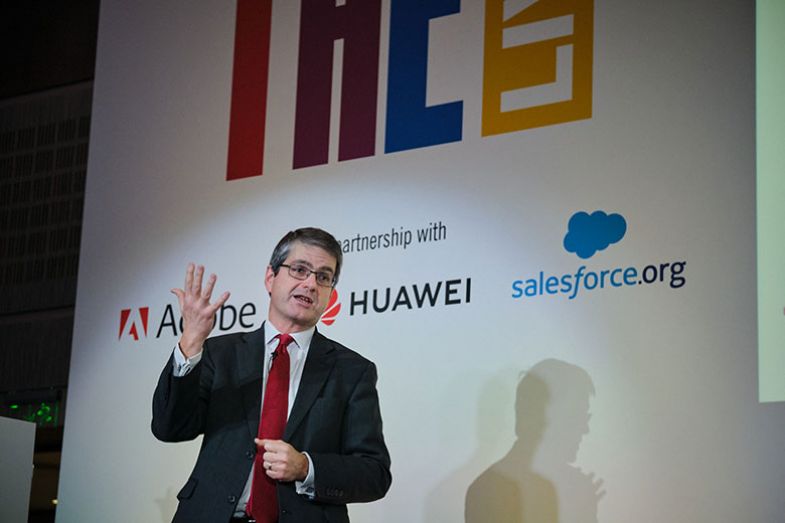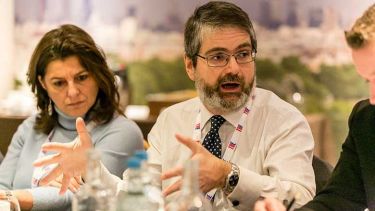
Source:
THE

PA Consulting hosted a debate at THE Live 2019 between four senior leaders about leading universities in an era of unprecedented complexity
During a period of high political uncertainty and amid a national strike, the chance to grill four senior figures in higher education was too good to miss for the audience at THE Live 2019.
Paul Woodgates (pictured), higher education lead at PA Consulting, which hosted the debate, summed up the dilemma shared by many: “The pace of change is unprecedented and we can’t predict what will happen in the future, so how can we plan or make decisions in the absence of certainty?”
Of course, the most immediate cloud hanging over the sector was what will be the implications of Brexit. When polled on whether they thought that international research links would be diminished or enhanced over the next five years, the majority of attendees thought they would lessen. David Price, vice-provost (research) at UCL, said his institution’s biggest challenge would be in attracting global talent. “We have been one of the most successful universities in terms of getting EU funding, but we need the best people in the UK to do that research,” he said. “We’ve not seen a lot of colleagues wishing to leave [since the referendum] but our biggest challenge is bringing people in at early career stage.”
One of the concerns shared by the panel was that partnerships with EU institutions could open doors to research opportunities in the booming Asian market – and that this might be lost. “Our ability to engage with the growing research and development base in Asia is best done through Europe,” argued Tim Blackman, vice-chancellor of Open University. The post-Brexit student visa regime will certainly have an impact on how attractive UK institutions are to an international audience. “It’s really important for a university like ours to attract international students into our community and expose our students to greater diversity,” said Liz Barnes, vice-chancellor of the University of Staffordshire. “Once Brexit happens, we could be less attractive as a degree will only get them into the UK, and not to Europe. Students want to travel.”
Nick Petford, vice-chancellor and CEO of Northampton University, suggested that UK universities would have to explore more sophisticated models for marketing themselves overseas, for example through branded franchises. “That would work out at a fraction of the cost it is for a Chinese student to come here,” he said. But with no long-term certainty over the nature of fees, universities’ financial viability was also under scrutiny. When asked whether it was possible a mainstream university could go bust, the audience was split. “If there were to be a fee cut, could that push some institutions over the edge?” asked Professor Barnes. “It wouldn’t be about bad management: it could be geography. You’d hope that if a university were to go under, there would be political pressure to provide support.”
In terms of the issues keeping the v-c panel awake at night, it was a range of concerns from the immediate to the long-term. Professor Barnes added that more support was needed for a student mental health crisis, and argued that the university leader role had grown in complexity. “Providing academic leadership is lovely; it’s the chief executive part of my role that gives me the most headaches,” she said. Professor Petford said that universities need to better prepare students for the future world of work, saying “We could end up moving out of kilter with skills needed for jobs that haven’t even been invented yet.” Professor Price felt there needed to be more focus on sustainability: “Thirty per cent of our carbon footprint at UCL is academic travel. We need to look at how we engage and collaborate across the world without destroying its atmosphere.”
Faced with such levels of uncertainty, Mr Woodgates called for institutions to do two things: first, consider their purpose and identity as the “guiding star”, to articulate what makes them unique; and second, to design their organisation to be flexible and adaptive over time. “You need to ensure you can make quick decisions, take risks in a managed way, but still within the context of your guiding strategy,” he concluded.
More education insights from PA Consulting.
Join the THE Live mailing list here for all the latest THE Live news and exclusive offers.
























